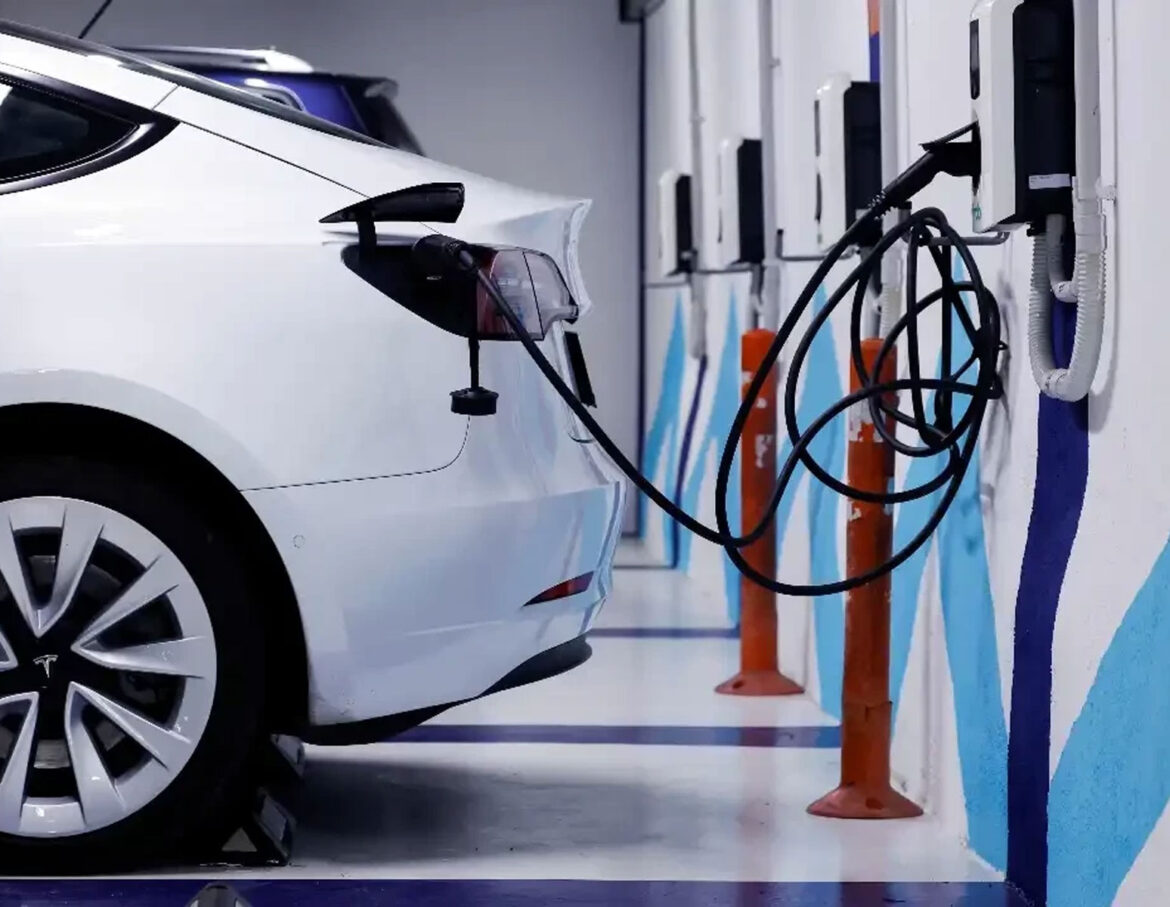In a crucial meeting on Wednesday, Sherry Rehman, Chairperson of the Senate Standing Committee on Climate Change, called for urgent action to fast-track Pakistan’s transition to electric vehicles (EVs) and renewable energy sources. With climate concerns mounting, Rehman criticized the slow pace of EV production, noting that only 60,000 units have been manufactured so far, falling far short of the target of 600,000. She pointed out that the transport sector continues to be the largest contributor to air pollution, responsible for 48% of the country’s emissions.
The meeting, which saw the participation of Federal Minister for Power Sardar Owais Leghari and other stakeholders, raised serious concerns about the lack of comprehensive data on local EV production and charging infrastructure. Rehman emphasized that the government’s sluggishness in this regard could delay achieving environmental goals.
Pakistan aims to install 3,000 EV charging stations by 2030, but as of now, only eight stations are operational. Despite over 1,000 individuals registering to establish new charging points, Rehman underscored the need for a rapid expansion of the EV infrastructure. She also urged banks to introduce EV financing schemes to improve accessibility to electric vehicles.
On the renewable energy front, the committee was informed that 55% of Pakistan’s electricity currently comes from renewable sources, with a target to increase this share to 60% by 2030 and to 88% in the long term. The closure of five inefficient, high-emission furnace oil power plants — which collectively generated 2,500 MW — was hailed as a positive move in reducing pollution and cutting costs.
Senator Rehman further called for stronger incentives to attract investments in solar, wind, and hydro energy, emphasizing the need for a robust renewable energy sector. She also highlighted the growing issue of water scarcity, particularly in Sindh and Balochistan, urging the adoption of solar-powered irrigation systems to replace conventional drip irrigation systems that deplete water resources.
The committee also addressed the environmental impact of Pakistan’s reliance on fossil-fuel-powered motorcycles and rickshaws, which contribute to 150 kilotons of carbon emissions annually. Minister Leghari shared plans to transition two- and three-wheelers, as well as diesel-powered vehicles, to electric alternatives.
Among the key recommendations presented by the committee were expanding the EV charging network, incentivizing private investment in the EV sector, enhancing local EV production to meet national goals, promoting renewable energy in homes and businesses, and enforcing energy-efficient building codes nationwide. Additionally, the committee called for greater promotion of energy-efficient transport and improvements to public transit.
Rehman reaffirmed the committee’s commitment to holding authorities accountable for their climate commitments, ensuring that the country remains on track for a greener, more sustainable future.
The meeting was attended by Senators Zarqa Suhrawardy Timor, Manzoor Kakar, Naseema Ehsan, Shahzaib Durrani, and PM’s Coordinator for Environmental Change Romina Khurshid Alam.



